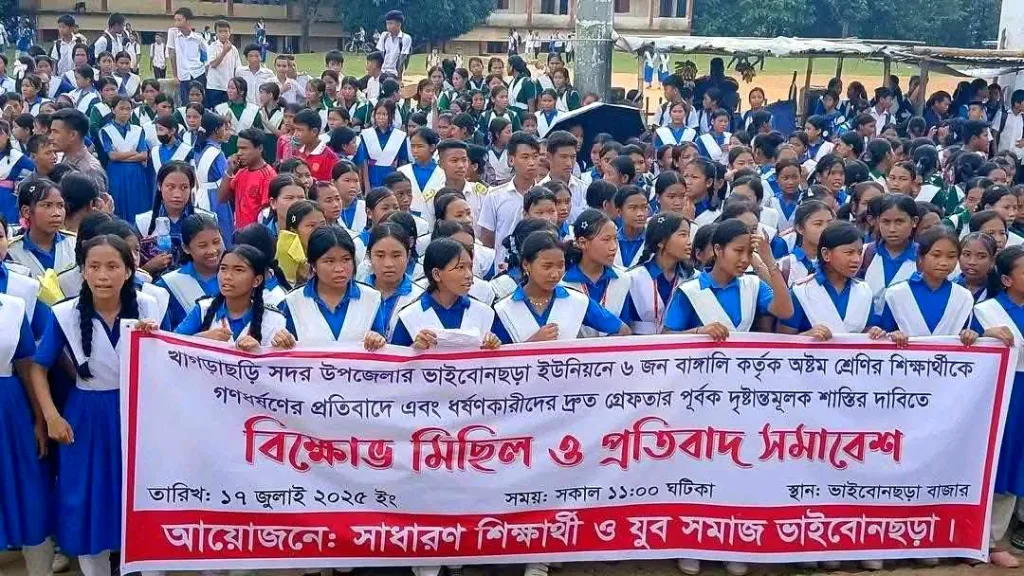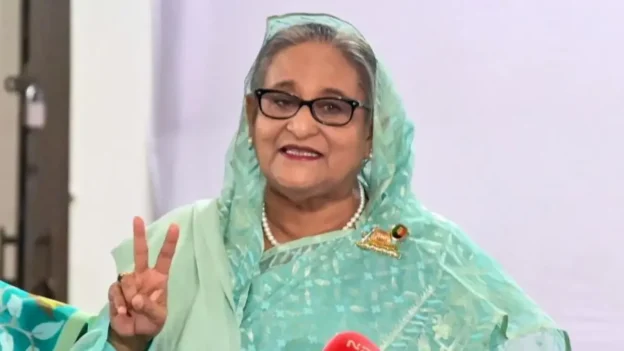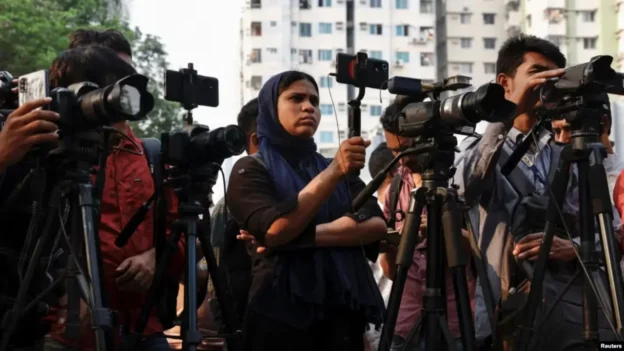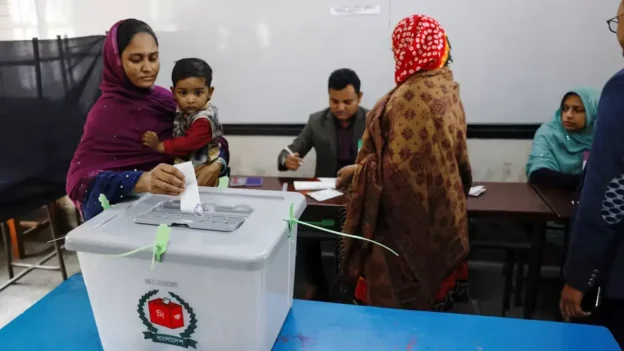A 14-year-old indigenous Tripura girl was allegedly gang-raped by six Bengali settler youths in the remote Bhaibonchhara area of Khagrachhari district last week, sparking mass protests and allegations that the Bangladesh Army violently suppressed peaceful demonstrators demanding justice.
The girl, a class eight student from Latiban village in Panchhari, had traveled to Bhaibonchhara to attend the annual Ratha Yatra religious festival.
Unable to return home before nightfall, she stayed at her uncle’s house. The victim’s family said, six Bengali youths broke into the house late that night, falsely accused the girl and her cousin of an “illicit relationship,” tied up the boy, and raped the girl in succession.
The survivor attempted suicide the following morning by ingesting poison. She was admitted to Khagrachhari Sadar Hospital in critical condition.
After regaining consciousness, she disclosed the details of the attack to her family, identifying the assailants.
The accused have been identified as follows: Md. Munir Islam, Md. Arman Islam, Md. Saddam Hossain, Md. Sohel Islam, Md. Iman Islam, and Enayet Hossain.
All six are reportedly affiliated with opposition political groups, including the Jatiyatabadi Chhatra Dal and Swechchhasebak Dal—student and volunteer wings of the Bangladesh Nationalist Party (BNP), the protesters said.

“We arrested four of the suspects shortly after the case was filed,” said Arefin Jewel, Superintendent of Police in Khagrachhari.
“Efforts are ongoing to apprehend the remaining two. The victim is currently receiving treatment at the hospital.”
On Wednesday, hundreds of indigenous students and local residents staged a peaceful demonstration in Bhaibonchhara, demanding the immediate arrest of the accused and an impartial investigation.
Witnesses reported that the Bangladesh Army intervened with baton charges, forcibly dispersing the crowd and injuring several protesters, including minors.
Footage reviewed by this publication shows uniformed personnel chasing unarmed demonstrators.
Protesters and community leaders have accused the military of siding with the accused and attempting to intimidate indigenous residents into silence.
“They beat students, girls, and elders. We were peacefully demanding justice, not violence,” said one protester, who requested anonymity for fear of reprisals. “Instead of arresting the rapists, they attacked us.”
The Bangladesh Army has not responded to multiple requests for comment.
The incident has drawn strong condemnation from indigenous organizations, women’s rights groups, and human rights defenders across the country.
Many describe the attack as part of a broader pattern of gender-based violence and systemic impunity in the militarized Chittagong Hill Tracts.
“The use of rape as a tool to terrorize indigenous communities is a longstanding and deeply disturbing trend in the CHT,” said a spokesperson for the Hill Women’s Federation.
“The failure of the authorities to arrest the perpetrators, combined with the army’s assault on peaceful protesters, signals state complicity.”
Families of the survivor and local activists say they fear reprisals from settler groups and security forces. Several protesters and student organizers have reportedly gone into hiding.
The alleged rape and its aftermath have reignited longstanding grievances in the CHT, where indigenous communities have faced decades of land dispossession, militarization, and settler violence.
The Chittagong Hill Tracts Peace Accord, signed in 1997, promised demilitarization and protection of indigenous rights.
Nearly three decades later, activists say little has changed.
“This isn’t just about one girl,” said Anewsha Tripura, from Khagrachhari.
“This is about the systematic erosion of indigenous dignity, security, and justice.”
As tensions escalate and the state remains unresponsive, many in the region fear further unrest.

